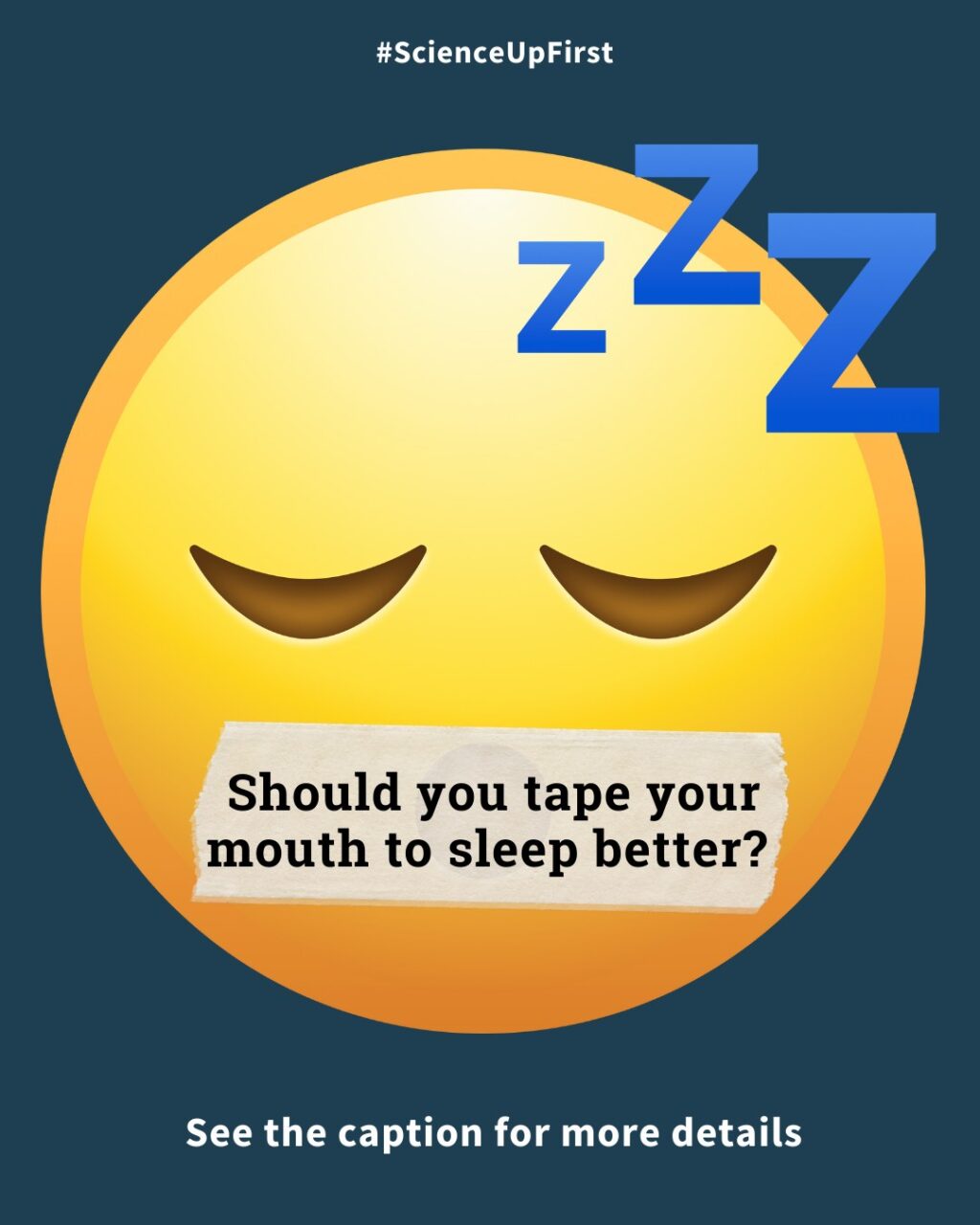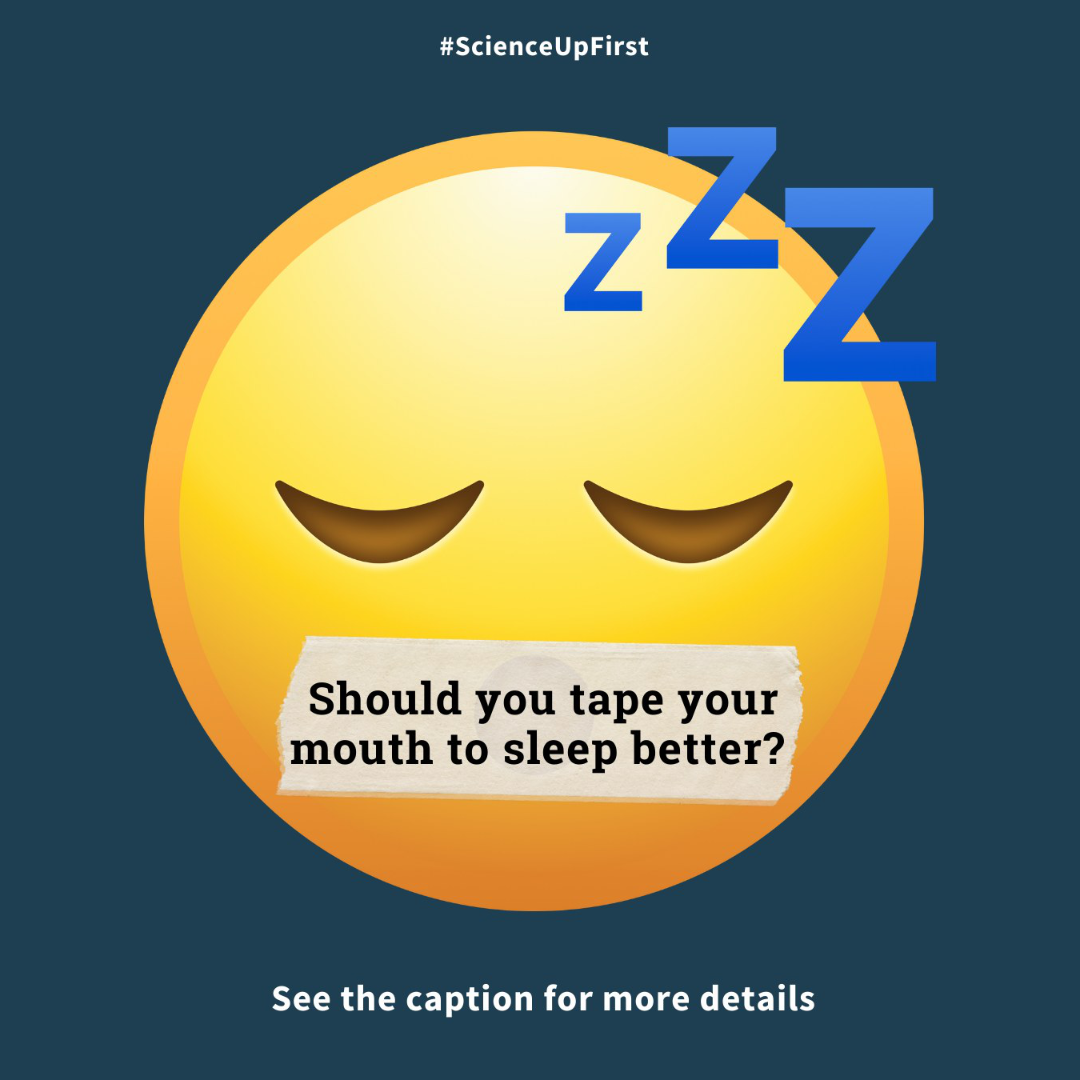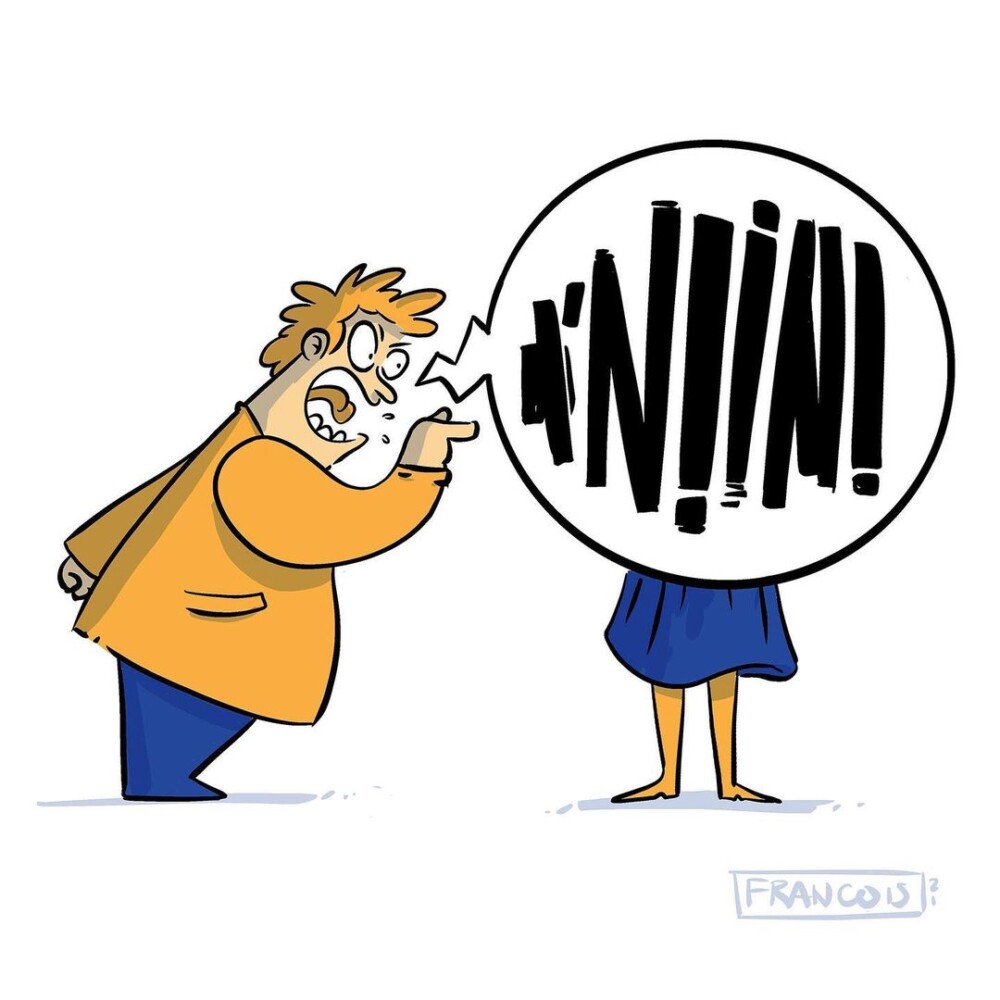
There are a lot of anecdotal claims on social media that promote taping your mouth at night while you sleep as a way to improve various aspects of your health. But is there any science backing up these claims? Let’s dive in.
Breathing through your nose may have some benefits. It can help filter out dust and allergens, and can warm and humidify air. It may help lower blood pressure and be beneficial for some forms of exercise (e.g. running) (1-5).
On the other hand, mouth breathing can dry your mouth and has been associated with certain health issues like gum inflammation, snoring, and sleep apnea (6-9).
But does that mean that taping your mouth while you sleep to force nose-breathing is a proven way to improve your health? No.
A 2025 scoping review found that the current research on mouth taping is limited, inconsistent, and mostly low quality (10). A separate 2025 systematic review confirmed this, finding only minor short-term improvements in a few small studies, mostly in mild cases (11). Experts also warn that mouth taping may be unsafe for people with nasal blockages or undiagnosed sleep apnea (11-13).
Mouth breathing is often not the problem itself, but it could be a sign of something else, like sleep apnea, allergies, or sinus issues (14). Wanting to stop mouth breathing doesn’t make mouth taping safe or effective. If there’s an underlying issue causing it, taping your mouth won’t fix the cause, and could even make things worse.
So while there are benefits to nose breathing for both sleep and exercise, there’s not enough strong evidence to recommend mouth taping for either.
- Five Ways You Might Be Breathing Wrong | American Lung Association | June 20, 2018
- Breathing through your nose when you exercise may make your runs easier | The Conversation | September 26, 2023
- Acute nasal breathing lowers diastolic blood pressure and increases parasympathetic contributions to heart rate variability in young adults | American Journal of Physiology | November 21, 2023
- The effect of nasal breathing versus oral and oronasal breathing during exercise: a review | Journal of Sports Research | January 2020
- Oral versus Nasal Breathing during Moderate to High Intensity Submaximal Aerobic Exercise | International Journal of Kinesiology and Sports Science | January 31, 2017
- Original Article Obstructive sleep apnea syndrome (OSAS) in mouth breathing children | Brazilian Journal of Otorhinolaryngology | September 2010
- Influence of mouth breathing on atopic dermatitis risk and oral health in children: A population-based cross-sectional study | Journal of Dental Sciences | January 2021
- Mouth Breathing: Understanding the Pathophysiology of an oral habit and its consequences | Medical Research Archives | January 2023
- Bucco-maxillo and systemic repercussions of the mouth breathing syndrome: a comprehensive review | MedNEXT Journal of Medical and Health Sciences | May 24, 2023
- Nocturnal mouth-taping and social media: A scoping review of the evidence | American Journal of Otolaryngology | February 2025
- Breaking social media fads and uncovering the safety and efficacy of mouth taping in patients with mouth breathing, sleep disordered breathing, or obstructive sleep apnea: A systematic review | PLOS One | May 2025
- Study Cautions Against Mouth Taping for Patients With Sleep Apnea | JAMA | October 2024
- Mouth Closure and Airflow in Patients With Obstructive Sleep Apnea: A Nonrandomized Clinical Trial | JAMA Otolaryngology | October 2024
- Mouth Breathing: Symptoms, Complications, and Treatments | Healthline | March 2023
Share our original Bluesky Post!
Mouth taping is trending, but does it actually improve sleep? Recent review found the evidence is weak, inconsistent, and sometimes risky. Mouth breathing is often a symptom, not the problem. Read more 👇 scienceupfirst.com/science-101/… #ScienceUpFirst
— ScienceUpFirst (@scienceupfirst.bsky.social) September 29, 2025 at 2:53 PM
[image or embed]
View our original Instagram Post!




